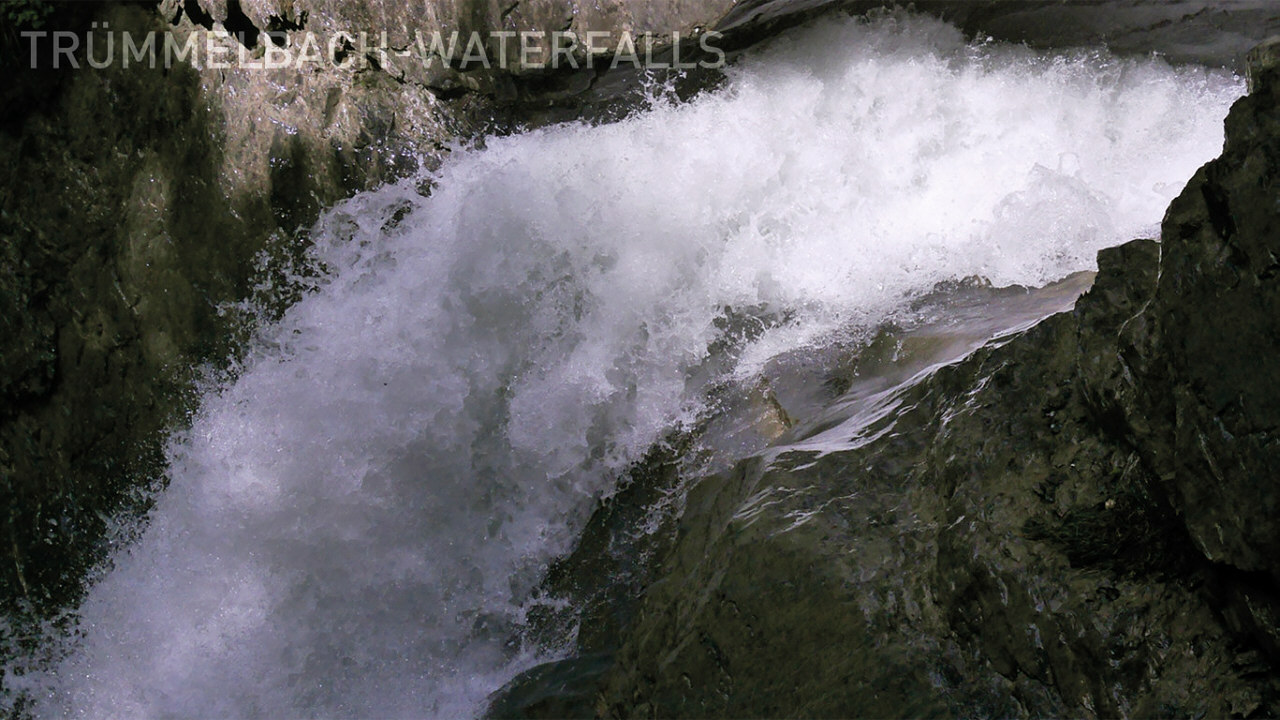
All the Trümmelbach Falls except the lowest were invisible to human eyes, and unapprochable, from the last Ice Age about 15'000 years ago until they were first rendered accessible in 1877. They were hidden inside the mountain, which is why the name "Trümmelbach" does not convey a visual impression, as is the rule with waterfalls, but an acoustic one. "Trümmelbach" comes from "Trommelbach" meaning a stream that sounds like a drum.
The amount of water in the falls varies greatly. From December to March there is just a little stream trickling down under thick sheets of ice. After frosty nights in April and October the flow of water measures only a few dozen litres a second. But between April and June, when the snow melts, and between June and September, when the glacier ice melts, as well as after heavy rain and thunderstorms, as much as 20'000 litres a second may come thundering through the rocky defile. The little stream becomes a mighty river.
The water that roars and tumbles down in summer is frozen into silence during the winter. Then only the rocks speak to us.
